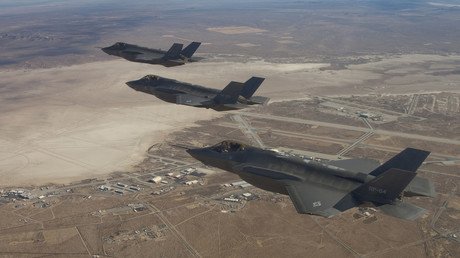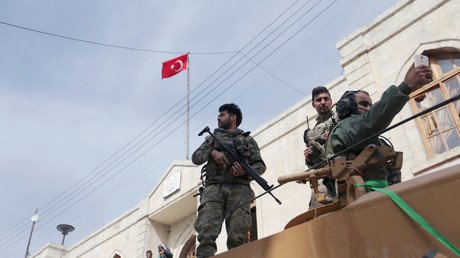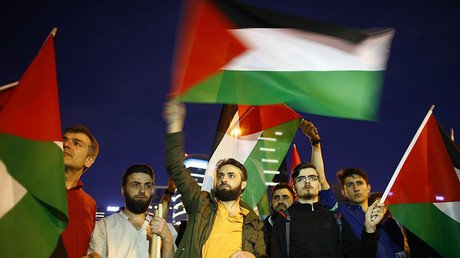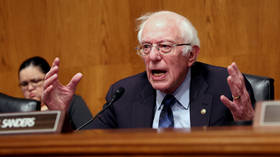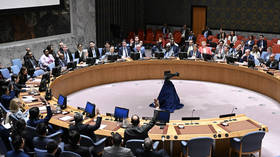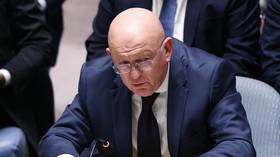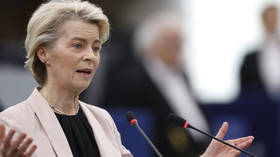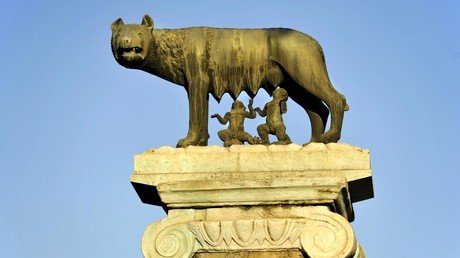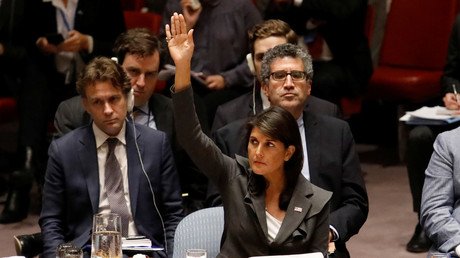Bickering NATO buddies: Turkish FM meets with Pompeo amid strained US-Turkey ties
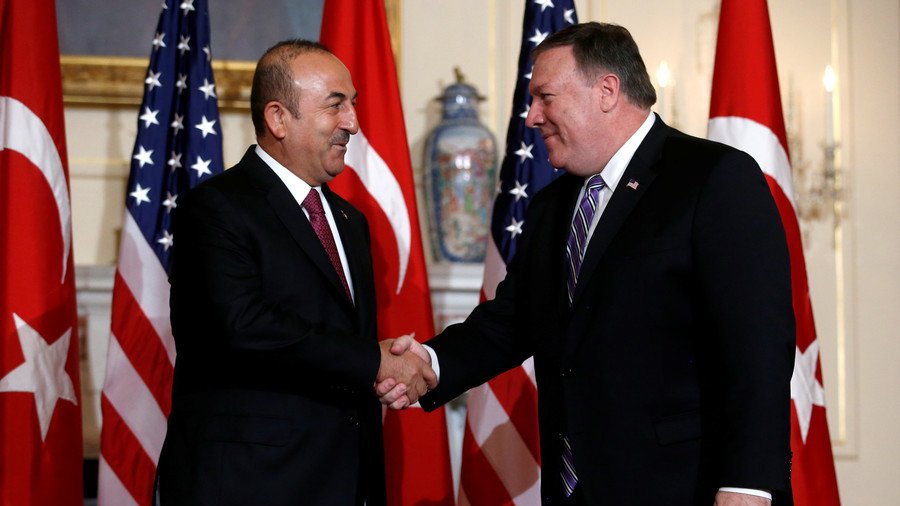
Turkey’s foreign minister met with US Secretary of State Mike Pompeo in Washington, amid growing tensions between the two nations on issues ranging from the US embassy in Jerusalem to Ankara’s purchase of Russian arms.
Cavusoglu described his meeting with Pompeo as “very successful,” with Turkish media even reporting that Ankara believed progress had been made towards reaching an agreement over the disputed status of Syria’s Kurdish militias.
Mevlut Cavusoglu arrived in Washington on Sunday for a two-day working visit – and there was plenty of work to be done. The foreign minister warned on Saturday that Turkey’s relationship with the United States had reached a critical juncture.
“Nobody wants to lose such an ally [as Turkey],” he said. “And if one does, it will damage them [the US], not us. We are not without options or alternatives, and we don’t need anyone else.”
At least on paper, Turkey and the United States are allies. But the two NATO states continue to find themselves on opposing sides of numerous high-stakes geopolitical issues.
Quarrelling over Kurds
The future of Syria’s Kurdish militias has been a longstanding point of conflict between Ankara and Washington. The United States supports the Syrian Kurdish YPG militia in its war against Islamic State (IS, formerly ISIS). But Ankara considers the group to be an affiliate of the outlawed Kurdistan Workers’ Party (PKK), which is listed as a terrorist organization by Turkey.
Commenting on the touchy issue, Cavusoglu said a day before his arrival in Washington that “[The United States] has preferred to collaborate with a terrorist organization in Syria. That was a grave mistake, and we are trying to change their position.”
At our meeting with Secretary of State Pompeo, we discussed #Turkey-#US relations, matters related to #Syria including road map on #Manbij and other regional matters. pic.twitter.com/2pqEpUrW20
— Mevlüt Çavuşoğlu (@MevlutCavusoglu) June 4, 2018
A roadmap focusing on the withdrawal of YPG fighters from the northern Syrian city of Manbij is expected to be announced following Cavusoglu’s meeting with Pompeo. US special forces are notably stationed in the city.
“We strive for a political solution in Syria. We reject all efforts towards dividing Syria. We have been working as a main actor for the political solution in Syria with Astana, Sochi and Geneva [peace] processes,” Cavusoglu said on Sunday.
Locking horns on Jerusalem
Donald Trump’s decision to relocate the US embassy in Israel from Tel Aviv to Jerusalem has ruffled more than a few Turkish feathers. Cavusoglu himself has described Washington’s embassy move as a blatant violation of international law.
"The US government's announcement that it will move its embassy in Tel Aviv to Jerusalem in May shows that it insists on destroying the grounds for peace by violating international law, United Nations Security Council resolutions on Jerusalem and the established UN parameters,” Turkey’s foreign minister noted in February.
Speaking to Turkish state media after touching down in Washington on Sunday, Cavusoglu was not shy about sharing Ankara’s position on the Israel-Palestine conflict.
“Turkey will never abandon Jerusalem,” he said, adding that the time had come to bring a new bill on Jerusalem to the UN General Assembly.
While Washington has remained a vocal – and sometimes lone – defender of the Israeli military’s handling of protests at the Gaza border, Ankara has repeatedly denounced the killing of unarmed Palestinian demonstrators at the hands of the IDF. In mid-May, Ankara recalled its ambassador from Tel Aviv following mass carnage on the Israel-Gaza border that left some 60 Palestinians dead and more than 1,000 wounded.
Squabbling over Russian air-defense systems
The two NATO allies continue to quarrel over military hardware. Washington has raised the issue of Ankara’s months-old plan to purchase Russia’s advanced S-400 air-defense systems, and the US Senate is even considering a bill that would halt shipment of F-35 stealth fighter jets to Turkey as punishment.
“We say that the US is our strategic partner. As our strategic partner, the US should not say we should knock on another door,” Turkish President Recep Tayyip Erdogan said on Friday in response to the proposed legislation.
The US State Department warned Turkey that it “should be mindful of the risks in making strategic concessions to Moscow,” and that the deal with Russia may “potentially” lead the US to impose sanctions on its NATO ally.
Feuding over Gulen
Cavusoglu is also expected to press Pompeo for the extradition of US-based Turkish cleric Fethullah Gulen, blamed by Ankara for a failed coup in 2016.
Ankara has a name for Gulen and his alleged activities – the Fethullahist Terrorist Organization (FETO) – and Cavusoglu confirmed on Sunday that he would be discussing “the FETO issue” with Pompeo during their meeting.
Needless to say, Cavusoglu and Pompeo had a lot to talk about.
Think your friends would be interested? Share this story!
